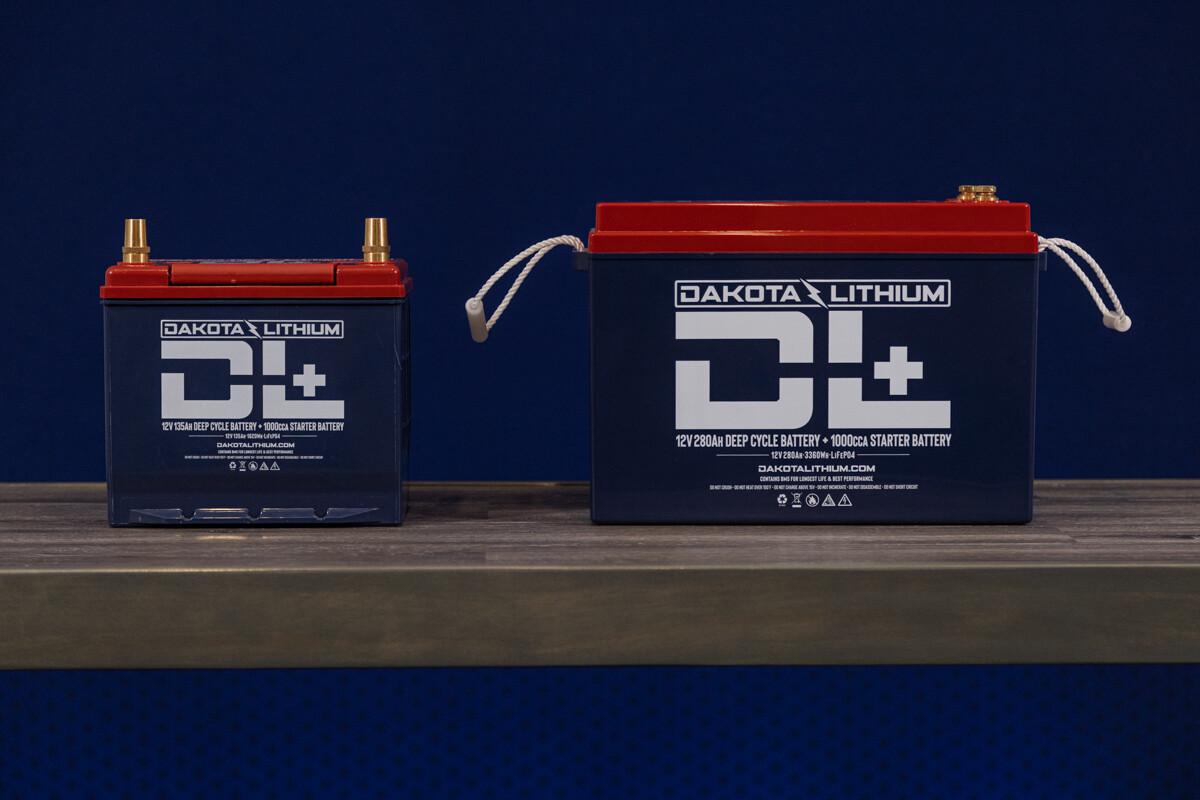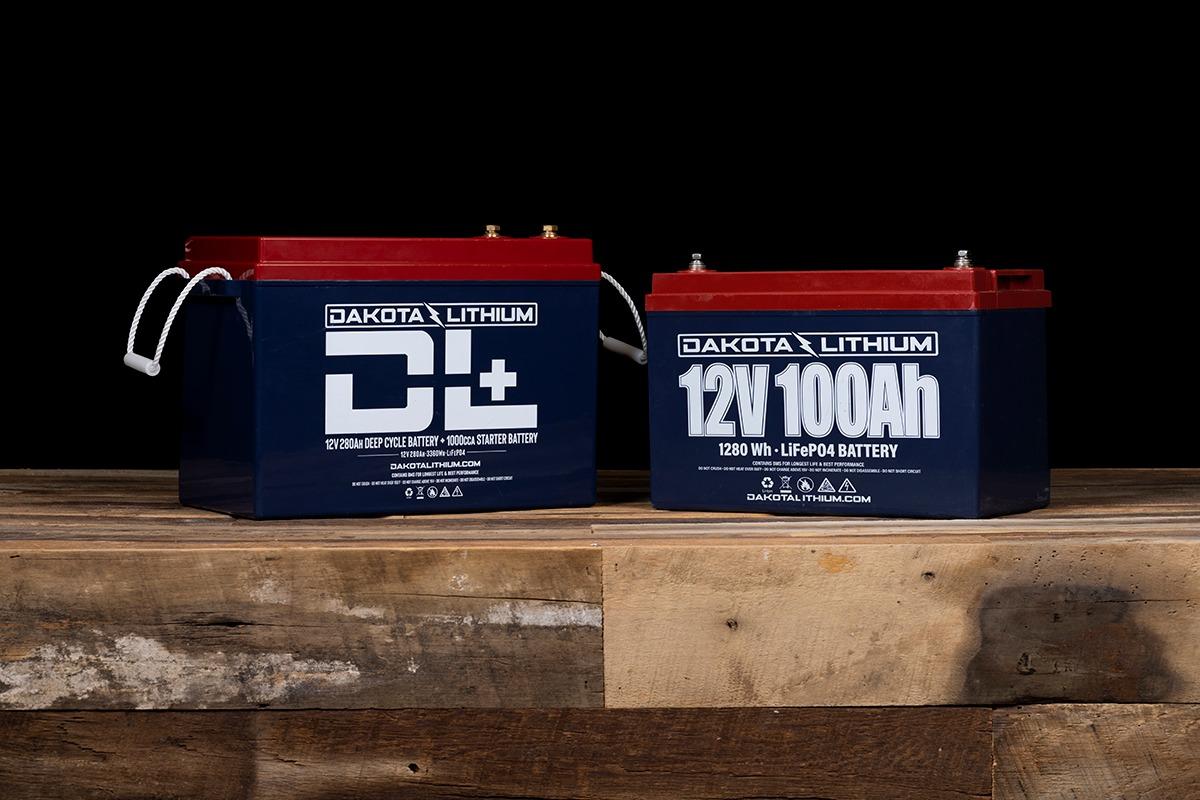What is the Difference Between a Deep Cycle and an Automotive Battery
Deep cycle batteries and automotive batteries are two types of lead acid batteries. Deep cycle batteries are called marine or house batteries. Automotive batteries are called starter or car batteries. Automotive and deep cycle batteries are designed for different purposes and have different characteristics.
Deep Cycle Vs. Automotive Batteries
Deep cycle batteries provide steady power for a long time. The discharge of energy is continuous.
Automotive batteries provide a high burst of power for a short period of time. This burst of power is what starts your car or truck’s gasoline engine. Automotive battery cranking power is measured in cold cranking amps. It is this cranking ability that makes a car battery a car battery.
In this article, we explain the advantages and disadvantages of deep cycle batteries and automotive batteries. Specifically their strengths and weaknesses and the applications they are best suited for. We explore the emerging technology of lithium dual purpose batteries which have the advantages of both an automotive and deep cycle battery but without the disadvantages.
Advantages of Deep Cycle Batteries:
- Consistent & steady discharge: Deep cycle batteries provide a consistent discharge over a long period of time. Great for applications where the battery is used for an extended period of time, such as an off-grid solar system or as a house battery in a boat, RV, or home on wheels.
- Longer cycle life: Deep cycle batteries can be discharged and recharged many times. They have a longer lifespan than a lead acid battery. Lithium batteries, however, have an even longer cycle life. For example, the Dakota Lithium Plus 12V 280Ah battery has 8X the lifespan of a deep cycle lead acid battery. This makes lithium deep cycle batteries the best choice for applications where the battery will be used frequently, such as an off-the-grid solar system that is powering a boat, RV, or cabin.
- Deep discharge capabilities: Deep cycle batteries can be discharged to a low state of charge. Deep cycle batteries provide more usable energy than automotive batteries. With lithium the depth of discharge is even deeper, allowing for 2X the usable power of traditional lead acid deep cycle batteries. This makes lithium deep cycle batteries well-suited for applications where the battery is used for an extended period of time, such as running your trolling motor, or graphs on a fishing boat.
- Higher capacity: Lead acid deep cycle batteries have a higher capacity than automotive batteries. This means a deep cycle battery can store more energy. The increased capacity is why deep cycle batteries are used as a house battery in an RV or boat. This is also whey deep cycle batteries are often called a marine battery since they are the most common battery found in boats.
Disadvantages of Deep Cycle Batteries:
- Higher cost: Lead acid deep cycle batteries are more expensive than automotive batteries, which makes them less cost-effective for some applications.
- No cranking power: Deep cycle batteries have a much lower cranking ability. A deep cycle lead acid battery cannot start a car. Deep cycle batteries do not do well for applications where you need a high burst of power, such as starting an engine. A Dakota Lithium Plus dual purpose battery is the only deep cycle battery that can also start engines.
- Shorter shelf life: Deep cycle batteries have a shorter shelf life than automotive batteries. Deep cycle batteries will degrade faster when not in use. This makes them less well-suited for applications where the battery will not be used for an extended period of time. Lithium deep cycle batteries do not have this disadvantage.
Is Lithium the Best Deep Cycle Battery?
Dakota Lithium iron phosphate (LiFePO4) has emerged as the market leader for deep cycle battery applications. Here’s why:
- Dakota Lithium deep cycle batteries have twice the usable power of traditional lead acid and sealed lead acid batteries. This makes Dakota Lithium the best choice for applications where you need steady power for a long time. Such as a home on wheels, a boat, or an off-the-grid cabin.
- Dakota Lithium batteries are half the weight of traditional batteries. By saving weight on your RVs, golf cart, boats, or any vehicle you improve handling, maneuverability, and reduce wear and tear.
- Dakota Lithium batteries last 5X longer than traditional batteries. Backed up by a best in class 11 year warranty. This make Dakota Lithium batteries lower cost in the long run.

A Dakota Lithium 12V 135Ah battery on the left is a drop in replacement for car batteries but also has 135 Amp Hours of deep cycle capacity. The DL+ 12V 280Ah battery on the right is a marine starter battery with 280 Amp Hours of deep cycle capacity plus 1,000 cold cranking amps.
Advantages of Automotive Batteries:
- High cranking power: Automotive batteries provide a high burst of power for a short period of time. This burst of power is what allows an automotive battery to start your car, truck, or boat’s engine.
- Lower cost: Automotive batteries are less expensive than deep cycle batteries. This makes a car battery more cost-effective for some applications.
- Longer shelf life: Lead acid automotive batteries have a longer shelf life than lead acid deep cycle batteries. This means a car battery will retain it’s charge when not in use. This makes automotive batteries great for applications where the battery will not be used for an extended period of time, like your car sitting in a parking lot for a month. That said, a lithium battery discharges much slower and has a 4X longer shelf life, making it the battery of choice for motorcycles, ATVs, golf carts, or any vehicle where the battery sits for a while between adventures.
Disadvantages of Automotive Batteries:
- Limited discharge capabilities: Automotive batteries have limited discharge capabilities. A lead acid car battery can only discharge <40% of the total energy stored inside the battery. This makes car batteries a poor choice for applications where the battery is used for an extended period of time like off-grid solar systems and marine applications. Dakota Lithium car batteries do not have this problem.
- Lower capacity: Automotive batteries have a lower capacity than deep cycle batteries. Automotive batteries store less energy. This makes car batteries less well-suited for applications where you need steady power for a long time. Dakota Lithium car batteries do not have this problem.
Is Lithium the Best Car Battery?
Dakota Lithium iron phosphate (LiFePO4) has emerged as the market leader for lithium batteries for starting cars, trucks, and boat engines. Here’s why:
- The Dakota Lithium Plus (DL+) line of batteries are dual purpose. This means they have all of the advantages of both automotive and deep cycle batteries with none of the disadvantages. It is one battery that can both start your car engine and provide long lasting and reliable deep cycle power.
- DL+ batteries have twice the usable power of traditional lead acid and sealed lead acid batteries deep cycle batteries. This makes Dakota Lithium the best choice for applications where you need steady power for a long time. Such as a home on wheels, a boat, or an off-the-grid cabin.
- DL+ batteries have 1,000 cold cranking amps of engine starting power and 10X the number of car starts per charge. This is because the cold cranking amps are lithium and are sustained, with no drop in voltage. This means you get faster starts and 10X more car starts per charge.
- Dakota Lithium batteries are half the weight of traditional batteries. By saving weight in your car you improve handling, maneuverability, fuel economy, and you reduce wear and tear.
- Dakota Lithium batteries last 5X longer than traditional batteries. Backed up by a best in class 11 year warranty. This make Dakota Lithium batteries lower cost in the long run.

The DL+ 12V 280Ah on the left has both 1,000 cold cranking amps plus 280 Amp Hours of Deep cycle power, all in a group 31 marine battery case.


